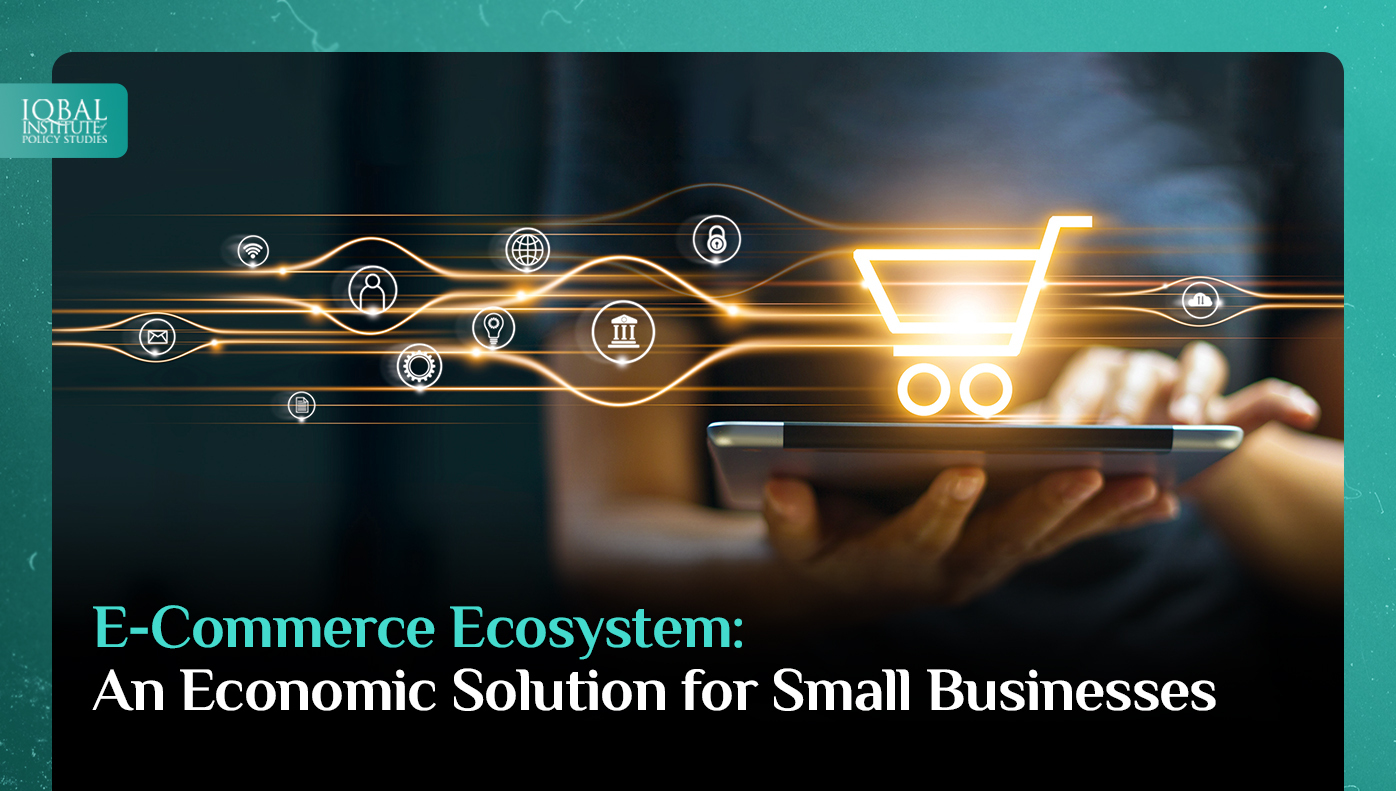E-commerce acts as an economic tool for promoting small businesses in the country. It helps create employment opportunities, increases the potential for international trade, and speeds up the transition to a digital economy to boost economic growth. E-commerce facilitates the progress and growth of small businesses in developing countries due to the ability of internet technology that helps reduce transaction costs, eliminate the intermediaries involved, and facilitate linkages to global supply chains.
E-commerce refers to buying, selling, and sharing information, goods, and services through computer networks. This digital method transforms the way business is conducted traditionally, and transactions are carried out between trading parties. Several developing countries, including Pakistan, are focusing on adopting the e-commerce ecosystem to promote small and medium enterprises. Small businesses are the backbone of Pakistan’s economy. It contributes about 40% to the country’s GDP and 25% to overall exports (SBP, 2022).
With Covid -19 crisis, businesses in Pakistan have experienced an infrastructural change by switching from the transactional method to an online payment system. Even the smallest businesses are using online payment systems for financial transactions. With this online payment system, many entrepreneurs have started their businesses; from handmade khussas e and organic makeup products to booking a hotel for a trip to starting a food business, this digital representation has provided opportunities to young entrepreneurs. These businesses will expand their operations to the international market via online platforms and provide employment.
Therefore, it has been observed that e-commerce is the new economical solution for business ventures. However, Pakistan needs to consider several factors to develop an e-commerce ecosystem. These include facilitating online transactions through e-commerce companies, enabling 4G connectivity to more remote areas, and providing opportunities for vocational training in marketing, sales, and e-commerce, introducing the culture of research and development that aids e-commerce.
E-commerce has untapped potential in Pakistan. Statistics indicate that only from 2017-2018, the sales of international and local e-commerce sellers increased from Rs20.7 billion to Rs40.1 billion (the State Bank of Pakistan). Pakistan’s 64% population comprises individuals under the age of 29, which could become the primary asset of this country. With the increased use of digital financial services, Pakistan’s GDP can increase by $36 billion and create more than four million jobs by the year 2025.
For developing the e-commerce market, it is important to implement an e-commerce strategy to improve the measurement of e-commerce markets and support the establishment of e-commerce associations and funding for start-ups and small business ecosystems. It is a dire need to improve the digital infrastructure. Moreover, the government must focus on collaboration with international online marketplaces for export capacity building which can act as a major source of foreign remittances in the future.



Leave a Reply